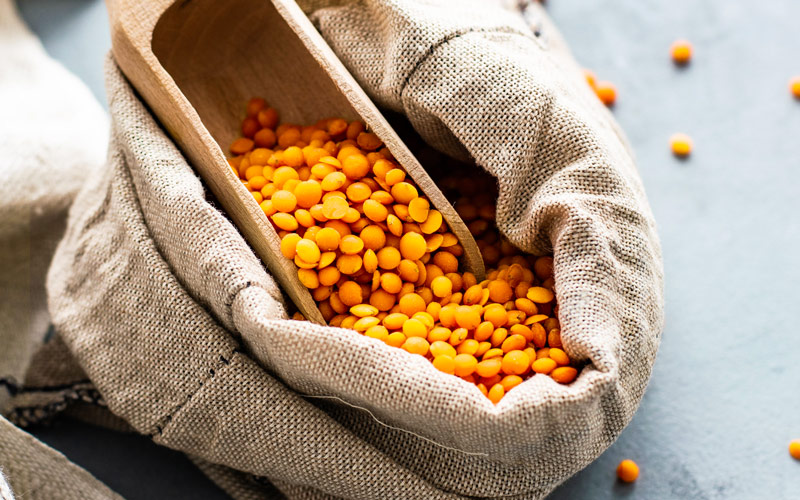What Gifts will 2023 bring for the UK Food System?

We all know that forecasting is a ‘mug’s game’ – unless one is Dominic Cummings, who of course predicted the pandemic – but here are some thoughts regarding the UK food system and its influencing factors in 2023.
Given everything that’s happened in recent years we cannot ignore the scope for, and the power of the left-field – Coronavirus, Putin’s atrocities, Gareth Southgate playing Foden, and the ‘Truss-Kwarteng Show’ remind us of this fact. So don’t rule out a plague of locusts.
As a starting point, thinking about the year ahead for the UK food system presents one with a rather gloomy near-term outlook – much like England’s hopes of becoming World Cup champions. And, like Eddie Jones, has probably made certain that England will not prominently feature in the 2023 Rugby World Cup, the British State and its many public bodies are losing the confidence of the dressing room as a result of incompetence.
From the Left and Right of the political spectrum, some blame all of this on Brexit, and cannot rationalise otherwise. Such a view is skewed though, and does not reflect honestly on the chronic deterioration in the decision-making of the State. It will be too much to ask for the British Government to become competent in 2023, but as Martin Wolf in The Financial Times states, it would be helpful if it stopped doing stupid things.
Indeed, 2023 will bring into sharper focus the next General Election – set to take place in the second half of 2024 – which is likely to lead to even more paralysis and inertia around big decisions. The Tories may just decide that they are turkeys for Christmas and continue to abuse their authority or galvanise. Whichever way one puts it, Britain is not working!
The British food industry will have to work within this ongoing car crash in 2023, navigating an ineffective DEFRA and its senior officials. All manufacturers would probably welcome progress on the Northern Ireland Protocol, even just to reduce bureaucracy – but whether this can be engineered given six years of stalemate is difficult to foresee. Westminster may be dysfunctional, but Stormont makes them look palpably capable. Given the likelihood of a potential General Election victory for Labour, how they manage Northern Ireland will be important to note.
The absence of the total incompetence of the Truss-Kwarteng Show should mean calmer times for the Pound Sterling, as UK interest rates are likely to settle at c3.75-4.5%. They may even ease just in time for Christmas 2023. Inflation is probably set to remain the key economic variable, with essentials prices compressing domestic consumer expenditure, especially in H1 of the New Year.
In the absence of new shocks – like a poor northern hemisphere harvest, another oil spike, or a collapse of the Pound Sterling – further elevation of goods costs and operating expenses, along with UK inflation, should start to ease from May-June 2023. Such an outcome should help to improve UK consumers’ moods, so maybe their confidence will recover a bit next year? That stated, the impact of higher interest rates will start to feed through, so expect 8-12% falls in UK house prices, whilst Council Tax is likely to rise by 5% across the board from April. For businesses, there is also the matter of the National Living Wage rising by c10%, which will feed through into spring 2024.
The UK labour market, especially the Agriculture, Food Manufacturing, and Food & Beverage sectors have also been poorly managed by the Tories. We have tens of thousands of UK nationals who cannot and will not work, but thousands of willing, hard-working migrants who are prohibited. Though this is likely to cool, quite how notably the cooling emerges remains to be seen, as many firms experiencing retention issues will be cautious about letting folks go. However, unemployment is expected to rise as business margins are squeezed and failures grow, potentially pushing unemployment to 4.0-4.5% by Christmas 2023 – up from the current 3.5%!
Indeed, Q1 2023 could be especially challenging for the UK Food & Beverage channel as skint shoppers in the midst of c10-15% food inflation and colder days count their pennies. So, not for the best reasons, labour supply challenges of recent years might be less prevalent as 2023 progresses.
The farming sector has pretty poor visibility from a UK Government whose future policy is frankly not fit for purpose. An enlightened view, maybe for Starmer et al to consider, is a Minister for the Food System, where long-term industry-wide, end-to-end challenges and opportunities could be addressed. Including animal welfare, diet and health, food security, the labour process, sustainability, and the role of technology. However, that will be too much to ask for under the present Government. Hence, the sector will muddle on, frustrated and seeking to advance despite the Government, rather than alongside it.
With strong price comparisons year-on-year, especially from springtime – in the absence of harvest shocks again and easing disruption from Ukraine, food commodity prices are likely to decrease as 2023 progresses. With a technocrat in No.10, shocks and surprises should be fewer as public finances remain stretched, thus stabilising the Pound Sterling. But the US Federal Reserve policy will be the key determinant of the dollar exchange rate. Continued investment sequentially in both fossil and non-fossil energy should also mean – again with no new shocks – that crude oil prices are also less volatile and on the lower side.
With trading down and the switch to grocery discounters by shoppers, British supermarkets will be focused upon inflation in H1 2023 in particular, trying with its supply chain in tow, to limit volume compression. Corporate activity in the retail channel may also be further discussed. Will Amazon remain sub-scale and peripheral? Can Iceland calmly refinance its debt? Will Morrisons rebound from its recent nadir under CD&R? How will Waitrose weather its own operational and trading storms? And, can Ocado’s losses stabilise?
M&A is likely to be a feature in the food manufacturing sector, with more trade-on-trade deals rather than financial buyer led activity, i.e., private equity, as a result of the impact of higher interest rates. Considerably priced out of activity when base rates were zero, even with synergies available, due to the weight of money in the hands of private equity et al buyers, 4% plus margin borrowing costs could change things. The Devro bid by German Saria Group coming in at the end of 2022 could be an indication of more to come.
Though many folks will gather for the first time in three years this month to celebrate Christmas together, which should be sound for supermarkets, it may not be so celebratory for the Food & Beverage sector – where things are a bit more volatile. Elements of the latter could find the first three to six months of 2023 particularly tough, hoping for inflation to dip as soon as possible.
Hopefully though, as 2023 progresses, stabilisation should emerge, and that may lead to calmer, brighter times. But if you need support in these times, Coriolis has a strong and accessible team at hand to help – so give yourself a gift this season, and call Mark Dudley.
To that end I wish you all a very Merry Christmas and a Happy and Healthy New Year.
Dr Clive Black
Senior Advisor
Coriolis Consulting
December 2022








